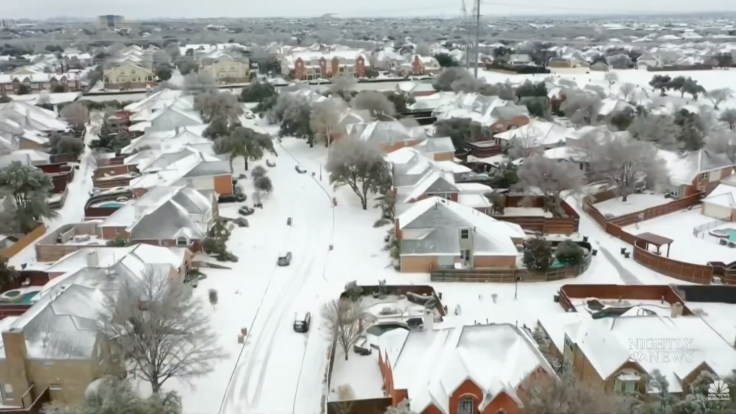Unexpected Freeze Warning in Warm Climates: A Wake-Up Call

Meteorologists and climate experts are calling this week's freeze warnings in warm US regions a stark reminder that no area is immune to extreme weather.
According to the National Weather Service (NWS), alerts were issued across Texas, New Mexico, Kansas, Oklahoma, Arizona, and Nebraska, where overnight lows dropped to 28°F (-2°C)— temperatures rarely experienced in these southern states.
The sudden cold front, first reported by Newsweek, is expected to impact millions of residents, threatening crops, water systems, and homes ill-equipped to handle sub-freezing conditions.
The NWS Midland/Odessa office in Texas urged residents to prepare for the possibility of damage to 'crops, other sensitive vegetation and unprotected outdoor plumbing,' noting that frost and freeze conditions could last through midweek.
Preparedness Gaps in Warm Regions
Experts said the freeze warnings underscore a lack of preparedness in areas with warm climates. Many homes and farms in the southern states lack freeze-resistant infrastructure, such as insulated water lines or backup heating systems.
'Warm-climate communities often do not prioritise frost or freeze readiness,' said meteorologist Paul Gross in a regional weather briefing.
'That means even a single cold night can have serious impacts,' he added.
Agricultural producers are also on alert. Crops still in late-season growth could be damaged or destroyed if temperatures dip below freezing. In previous freeze events, southern fruit-growing regions reported significant losses, with local economies and supply chains feeling the effects for months afterwards.
Impact on Agriculture and Infrastructure
Farmers in parts of Texas and Oklahoma have begun covering crops and securing their irrigation systems as forecasts call for more nights with temperatures below freezing.
In the Midwest, some areas of Nebraska and Kansas are expected to reach lows near 24 °F, according to Newsweek, potentially damaging unharvested produce and winter wheat.
Households across the affected regions have been urged to take precautions, such as draining outdoor pipes and bringing potted plants indoors.
'People in these regions are not used to dealing with hard freezes, so we're trying to get the word out early,' the NWS said in a statement.
Climate Variability Behind Extreme Swings
While the world is warming overall, scientists warn that climate variability is increasing, leading to more extreme temperature fluctuations.
A study cited by Phys.org found that rapid shifts from hot to cold conditions 'may negatively impact ecosystems and human health' and are becoming more common worldwide.
Climate researchers say these unpredictable fluctuations are particularly challenging for communities unaccustomed to cold weather.
'It's not just about rising average temperatures,' said Dr Andrew Pershing, a climate scientist with Climate Central.
'It's about volatility—the sudden drops that catch people and infrastructure off guard.'
A Wake-Up Call for Public Awareness
Officials stress that public awareness is critical when freeze warnings are issued in warm regions. Residents unfamiliar with such alerts may underestimate the risk and fail to act until damage occurs.
In Connecticut, where similar warnings were issued for inland counties, the Connecticut Insider reported that temperatures were expected to plunge into the 20s °F, prompting authorities to warn that unprotected crops and pipes could be damaged overnight.
Weather experts say the freeze warnings in warmer parts of the US should be taken as a wake-up call — a reminder that even areas known for mild winters are not immune to sudden cold extremes.
'People think it can't happen where they live,' Gross said. 'But as climate patterns shift, the unexpected becomes more likely. Preparedness has to start now.'
© Copyright IBTimes 2025. All rights reserved.





















